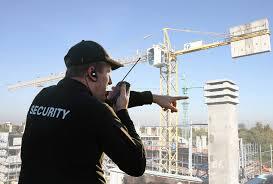Emergencies hit fast. Fires, fights, or accidents can spark chaos in seconds. That’s when emergency security officers step up. They use clear steps to tackle crises and keep people safe. So, how do they do it? Let’s walk through the Response Protocols for Emergency Security Officers!
Spot the Threat
First, officers figure out what’s happening. They scan the scene. Is it a fire? A medical issue? Maybe a violent person? Next, they judge how bad it is. Do they need police, firefighters, or doctors? A fast check helps them choose the right move. After all, a wrong guess can cause big trouble. For example, if they miss a huge fire, help might come too late. Training makes this step sharp.
Our Emergency Security team prioritizes worker safety!
Secure the Scene
Then, they take charge of the area. They hustle people away from danger. They might grab cones or tape to block off risky spots. If someone’s hurt, they jump in with first aid or call for backup. Their mission? Keep everyone safe. Speed matters here. Imagine a gas leak; every second counts to avoid a boom. Quick moves save the day.
Stick to the Emergency Procedures
Every crisis has a game plan. Officers learn these in training. For instance, a shooter shows up? They tell folks to run, hide, or fight. A fire breaks out? They grab extinguishers and hit the alarms. Someone’s hurt? They might start CPR. Following the plan cuts confusion. Plus, these steps come from experts. The “Run, Hide, Fight” trick for shooters? It’s used everywhere because it works.
Emergency Security offers 24/7 guarding. Visit us for details!
Clear Communication
Talking matters a ton. Officers use radios to buzz their team. They dial 911 if it’s serious. They also shout simple directions to people, like “Stay calm” or “Head to the back door.” Clear words stop panic. Messy talk can mess things up. If they don’t say where to go, people might run into trouble. Once, at a concert, guards used radios to stop a fight fast. It kept a crowd from turning wild.
Document the Incident
After the storm passes, officers write it all down. They jot the time, place, and what they did. They snap photos or videos for proof. Then, they chat with their team about what went right or wrong. This helps them get better. Reports do more, too. They can back up a court case or help catch a crook. Like after a store theft, guards’ notes helped cops nab the thief with video.
Get Better Review and Train
Learning keeps going. Officers run drills to stay quick. They tweak plans for new dangers, like cyber stuff. They take classes to pick up fresh skills. This keeps them ready. Practice builds habits. They might rehearse evacuations or first aid. In real chaos, those habits kick in. In 2019, a mall guard nailed this. He spotted a fire, cleared shoppers out, and led firefighters in. Lives stayed safe because he was prepared.
The Power of Preparation
Security officers shine in tough spots. They face danger with cool heads, sticking to these Response Protocols for Emergency Security Officers. Next time you spot a guard, think about their big role. Help them out; listen when they tell you what to do in a crisis. Good training and solid plans make them unstoppable. Preparation is their superpower!
